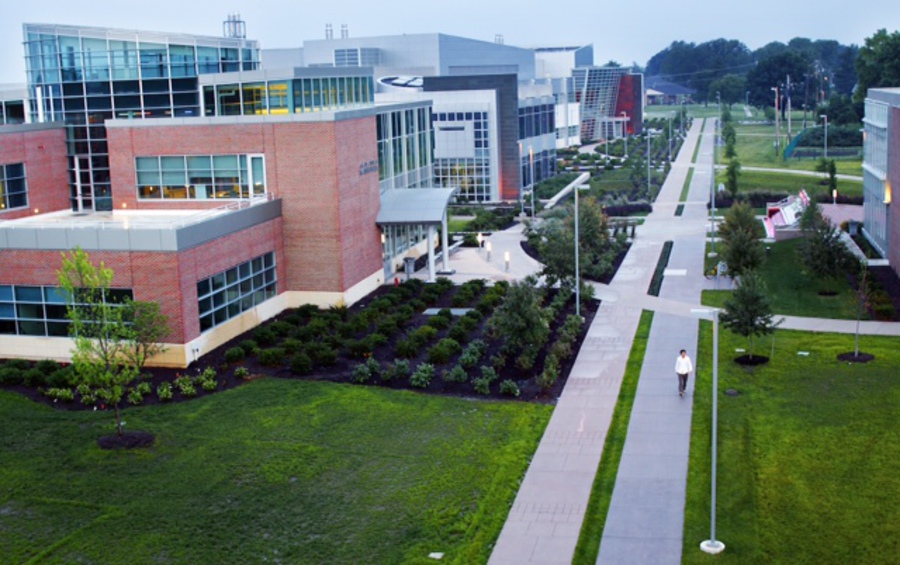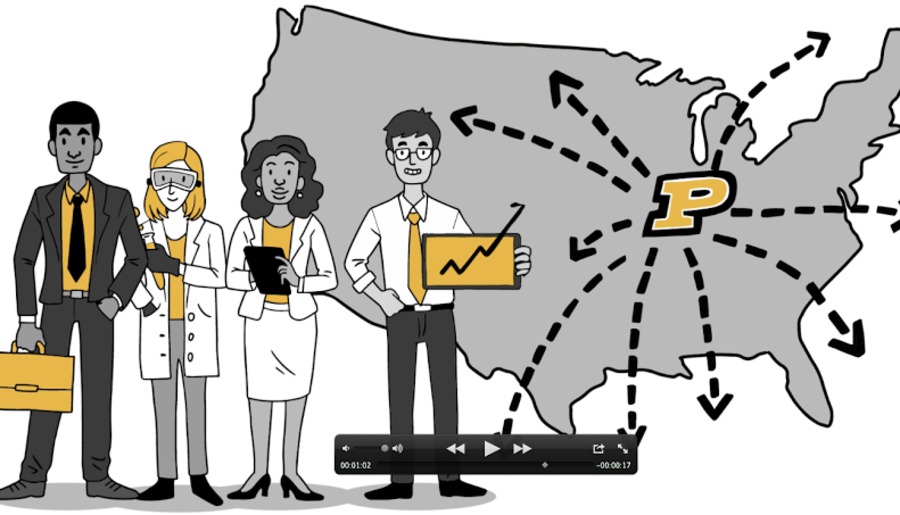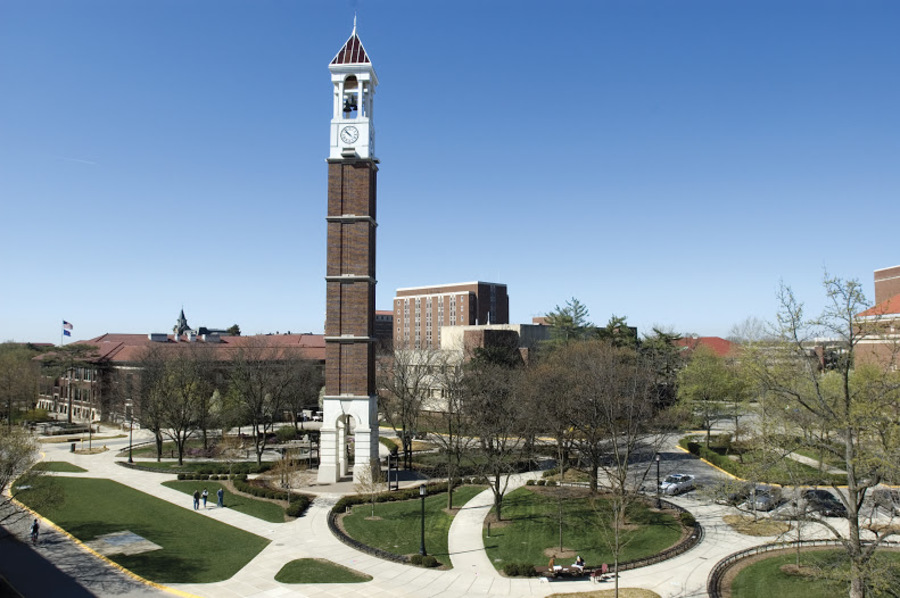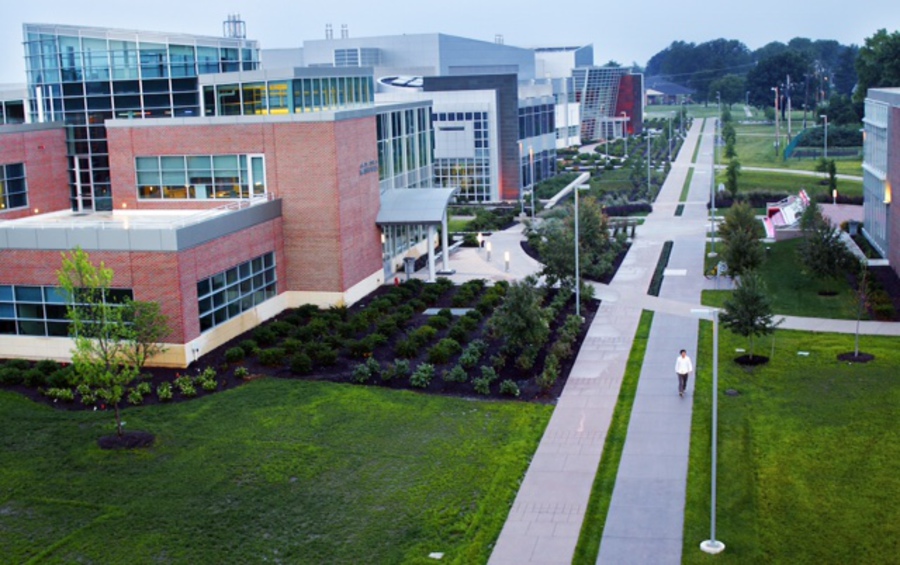Makerspace Profile
Overview
Discovery Park was developed through the initiative of President Emeritus Martin Jischke during his presidential tenure. It was created to provide a central hub for interdisciplinary work across the campus and to promote the translation of Purdue’s research into new companies and licensed products. Through the generosity of a $26 million grant from the Lilly Endowment, four virtual centers were initiated and then private funding supported the building of the facilities. Later, the Lilly Endowment provided another $25 million for the expansion of four additional centers. Discovery Park now has six buildings and has flourished since its inception with many new centers and interdisciplinary activities including internships for undergraduate students both as part of research teams and in start-up companies.
Discovery Park is a $1.11 billion research enterprise which is based on research expenditures, laboratory and equipment investment, and endowments. $869 million of research expenditures have been utilized through the Discovery Park centers since its launch, with 13 funded research projects exceeding $5 million each, and eight multi-year proposals each exceeding $10 million. Eighty new companies have been assisted or seeded through Discovery Park activities. More than 5000 students have participated in entrepreneurial activities since the inception of Discovery Park. To date, 452 disclosures, patents, licenses/options on intellectual property have been facilitated within the Park, linking it to the nearby Purdue Research Park – a certified technology park located just north of Purdue’s main campus.
Discovery Park attracts researchers and students from all 11 West Lafayette colleges and schools, Purdue’s regional campuses, Purdue Research Park locations throughout Indiana, Indiana University and the Indiana University School of Medicine. Discovery Park also hosts projects with countries such as Australia, Azerbaijan, Bangladesh, Cameroon, China, Colombia, Costa Rica, Ethiopia, India, Kenya, Laos, Morocco, Nigeria, Russia, Rwanda, Senegal, South Korea, South Sudan, Tanzania, Uganda and Zimbabwe.
Access
Discovery Park is accessible to faculty, staff and students from every unit on campus. The Birck Nanotechnology Center (BNC) includes some resident faculty whose research activities and grants are interdisciplinary and utilize the facility. In addition, many Purdue faculty are affiliated with the BNC and access the facilities for specific projects. One start-up company has temporary space in BNC to provide access to expertise and instrumentation which promotes its development. Faculty and external users arrange for use of the laboratory space, including the cleanroom, through grant funding and user fees. Similar arrangements are available at the Bindley Bioscience Center for use of the many laboratories and instrumentation at that facility. Both facilities have research scientists on staff that are experts in the use of specific instruments and assist users to achieve optimal results. The Hall for Discovery Learning and Research has space that facilitates research on learning strategies. Faculty can schedule courses to meet in the research space so that data can be collected about learning strategies while courses are being taught and new techniques are employed. The Center for Drug Discovery houses several laboratories and faculty research teams for faculty connected with drug discovery. The Burton D. Morgan Center for Entrepreneurship serves as the social hub of Discovery Park and includes lecture halls, and several large and small meeting spaces, and the Park’s only food service café. It is where many centers hold conferences and symposia. It also houses the Purdue Foundry, a group of experts who guide faculty, staff and students in thinking about commercialization strategies for their discoveries.
All Discovery Park buildings have suites of offices which are designed to accommodate mixed groups of faculty, staff and students working on funded large-scale interdisciplinary programs. Each building has conference rooms where groups of faculty and students come together to brainstorm new interdisciplinary projects and write/assemble large interdisciplinary grant proposals.
Tools, Materials and Resources
The instrumentation in the Birck Nanotechnology Center, the Bindley Bioscience Center, and the Center for Drug Discovery are highly sophisticated. The Hall for Discovery Learning and Research offers specialized teaching technologies for studying learning methodologies. Other facilities in Discovery Park, the Gerald D. and Edna E. Mann Hall and the Burton D. Morgan Center for Entrepreneurship utilize lecture halls, meeting rooms and common areas on each floor to facilitate interaction and collaboration. A facilities brochure is attached to provide detailed information.
The Birck Nanotechnology Center (BNC) is an interdisciplinary research unit that provides infrastructure for 160 affiliated faculty members and their research groups from 36 academic units at Purdue. BNC has 105,000 assignable square feet, including 25,000 square feet of a class 1-10-100 nanofabrication cleanroom – the Scifres Nanofabrication Laboratory. A portion of the cleanroom is configured as a biological/pharmaceutical cleanroom to facilitate bionanotechnology research in collaboration with the Bindley Bioscience Center. Key facilities such as surface analysis, nanometrology, electron microscopy, molecular beam and atomic layer deposition, nanoelectronics, nanophotonics, bionanotechnology cleanroom, and femtosecond laser characterization support a wide variety of research. BNC’s highly collaborative atmosphere is supported by functionally designated labs, including space for industry partners and companies. The facility includes the fabrication-teaching lab in Scifres Nanofabrication Laboratory for advanced undergraduate students. The BNC also offers external companies to access laboratory space and expertise. Mihail Roco of the National Science Foundation called BNC “the epitome of a university-based research facility focusing on the growing discipline of nanotechnology.”
The Bindley Biosciences Center has 30,000 assignable square feet, including 20,000 square feet of lab space, to foster multidisciplinary team-based research. Large, open and flexible labs offer several core research capabilities: biological mass spectrometry with metabolomic and proteomic applications; computational life sciences and informatics; biophysical analysis; biomolecular screening, a drug discovery core; flow cytometry and cell sorting; bioscience imaging; translational pharmacology and bionanotechnology.
The newest building, the Drug Discovery Facility is designed to promote the discovery, design and development of new drugs through an innovative architecture that encourages collaborations in chemistry, medicinal chemistry, and biology. The facility houses the Purdue Center for Drug Discovery, and can accommodates more than 100 multidisciplinary researchers with nine faculty offices. The building provides facilities for organic synthesis, including over 80 fume hoods, as well as cell culture, analytical chemistry, molecule purification, biochemistry and molecular biology, and fluorescent imaging. A unique feature of the design lab allows undergraduate and graduate students to observe experiments from outside through glass barriers, watching senior researchers perform experiments without having to knock on a door. While a part of Discovery Park, the facility is located on the main campus in the University’s Life and Health Sciences Park, providing state-of-the-art space for synergistic, innovative research and training in the discovery, design and development of new drugs.
Facility highlights of the Hall for Discovery and Learning Research include an educational design laboratory for developing and testing instructional technologies. In this laboratory, researchers are able to use cameras, microphones, projection screens, TV monitors and programmable lights mounted on an open grid ceiling structure to support innovation in teaching and to better understand how students learn. For example, a researcher might use equipment in the design lab for tracking eye movement in order to assess how students access information from computer-based applications. There also are two educational laboratories: a large project laboratory and a "wet science" laboratory. The first two floors accommodate the Discovery Learning Research Center which brings together experts in academia, industry and K-12 education to improve learning, especially in the science, technology, engineering and math fields. Other Discovery Park large-scale centers utilize the flexible design space for interdisciplinary projects.
Design features for the Gerald D. and Edna E. Mann Hall include a flexible layout for new projects, and contemporary, open spaces to foster interdisciplinary collaboration. Mann Hall has videoconference and electronic capabilities in conference and meeting rooms. The Gerald D. and Edna E. Mann Hall is home to the Regenstrief Center for Healthcare Engineering and the Purdue Homeland Security Institute. The facility also houses Purdue's Global Sustainability Initiative, which includes Purdue's Energy Center, Center for the Environment, Purdue Water Community, Center for Global Food Security, the Purdue Climate Change Research Center, and the Center for Global Soundscapes.
Burton D. Morgan Center for Entrepreneurship is home to many of Purdue’s robust entrepreneurial activities. Each year, the facility hosts the Burton D. Morgan Business Plan Competition. Opportunities like elevator pitch competitions and other experiential entrepreneurship learning activities are offered through programs associated with the Burton D. Morgan Center for Entrepreneurship. Efforts through the Center help accelerate the understanding and application of entrepreneurship with faculty, staff and students across campus through programs like the Technology Realization Program, Entrepreneurship Leadership Academy, and the Deliberate Innovation for Faculty Fellows. Since Fall 2005, more than 4,000 students representing every college have participated in the Certificate in Entrepreneurship and Innovation program, resulting in more than 1,870 students receiving the Certificate in Entrepreneurship and Innovation to date. The second floor houses the Purdue Foundry which was launched by the Purdue Research Foundation to assist entrepreneurs whose startups and ideas are based on a Purdue innovation. The building offers central meeting places for workshops, seminars and classes, and works in conjunction with all Discovery Park centers and the Purdue Research Park.
Access & Usage Costs
Purdue’s Discovery Park has a central budget provided by the University that supports many of the core centers. The Birck Nanotechnology Center receives some overhead return on grant funding in order to support laboratory and instrumentation costs. In addition, it charges modest user fees for access to core facilities. The Bindley Bioscience Center has modest fees for use of its core laboratories as does the Discovery Learning Research Center. The new Drug Discovery Center will follow a similar model as its core laboratories become operational.
A flexible Nanotechnology Incubator lab may be leased by companies through the Purdue Research Foundation. All of the equipment in the BNC is shared, and is accessible to qualified and trained users from Purdue and from academic, industrial, and government laboratories outside Purdue. Most of the major equipment is available through recharge centers that support maintenance, supplies, and support staff.
Management
The Center Directors for the Birck Nanotechnology Center, the Bindley Bioscience Center, the Discovery Learning Research Center, and the Center for Drug Discovery have specific oversight of space and equipment usage in their facilities. They report to the Executive Director of Discovery Park. The Executive Director of Discovery Park has responsibility for overall management of Discovery Park space and reports to the Executive Vice President for Research and Partnerships. All of the facilities housing research core laboratories have dedicated research scientists and/or engineers assigned to those laboratories. The highly trained staff are available to support and assist faculty and students in the completion of their projects.
Training
Discovery Park provides expansive opportunities for training and skills development at all levels: undergraduate students, graduate students, postdocs, staff, and faculty. Workshops on instrumentation; seminars on research; workshops on commercialization; presentations on new areas of research; fellowships; and leadership programs are just a few of the learning opportunities provided for the campus through Discovery Park.
Efforts through the Burton D. Morgan Center for Entrepreneurship help accelerate the understanding and application of entrepreneurship with faculty, staff and students across campus and with stakeholders globally.
Corporations seek research partnerships to form strategic alliances with Park centers in areas of common interest.
Discovery Park's success also stems from the connections it fosters between students and teachers. With its interdisciplinary focus, particularly in the STEM areas, Discovery Park uses the power of that connection to establish stronger ties at the local, state, national and global levels to address the major challenges facing our world today.
Use and Activity
Discovery Park plays a lead role in developing young faculty and researchers at Purdue, offering valuable programs, collaborations, workshops, mentoring and training to advance large-scale research across disciplines and moving research from the lab to the marketplace. All facilities are shared and the research is highly collaborative with researchers from across campus to around the world.
The Burton D. Morgan Center for Entrepreneurship hosts seminars, workshops, classes, talks, and special events on a daily basis. A central café is located in the centers where faculty, staff, students, and guests frequently meet. In the summer, several camps are held: notably, a one-week camp for teachers and high school students on alternative energy sources and a three week program for 10-12 Russian undergraduate students on entrepreneurship and American culture. Notable speakers give lectures through the Discovery Lecture Series three to four times per semester. The Burton D. Morgan Center for Entrepreneurship houses The Foundry which is part of the Purdue Research Park to facilitate commercialization for students, staff, and faculty. Literally, hundreds of events are held in Discovery Park annually.
Culture and Community
Discovery Park fosters collaboration and innovation for the entire Purdue University campus. As an example, from FY10-FY14, more than 1,500 extramural research awards involving Discovery Park and accounting for more than $400M in new funding to Purdue were made. Faculty, students, and staff participants in these grants are “makers” who develop new ideas, new services, new licenses, new patents, and new companies. Since its inception, over 80 new companies have been facilitated through Discovery Park.
Challenges and Lessons Learned
~ ~ ~Advice to other Makerspaces
Leadership is critical at all levels. The leaders must be willing to invest time and energy into creating relationships and must be flexible with policies. Others must perceive leadership as interested and welcoming. There has to be value on both sides. The costs of access need to be feasible for potential users. The entire organization has to be perceived as synergistic rather than competitive with academic units as well as other operational units.





